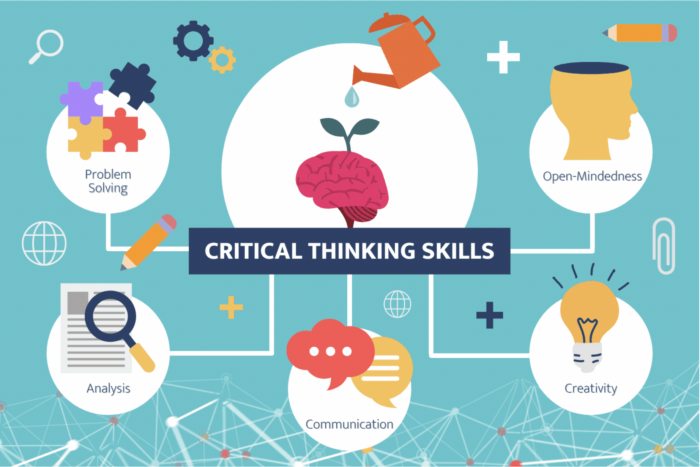In episode 53 of the Paws & Reward Podcast, I speak with Emily Strong about a necessary and possibly under-utilized skill for all behavior consultants to exercise and teach their clients – critical thinking. Critical thinking is defined as the objective analysis and evaluation of an issue in order to form a judgment. Critical thinking is to be done objectively—meaning without influence from personal feelings, opinions, or biases—and focuses solely on factual information. This can be challenging, especially since we, as humans, are emotional and have inherent biases we might not be aware of. How can we be sure we are thinking critically and what are some common pitfalls? Critical thinking skills are essential if we want to make informed decisions. It impacts all aspects of our lives. Watch our conversation on my YouTube Channel.
What are the three pillars of critical thinking?
- Being able to identify logical fallacies
- When we are assessing a situation, logical fallacies are when we make errors in our reasoning which influences our conclusions.
- Here is a comprehensive list of the most common logical fallacies to be familiar with.
- Being able to recognize cognitive biases (errors in perception) and how we interpret what we see in the world.
- We can’t escape who we are and our past learning experiences. Being aware of our learning history is healthy and essential for growth.
- Cognitive biases cause us to make errors in judgment and are essential to recognize if we want to learn how to think critically.
- Epistemology: Assessing the quality of the information we are receiving.
- How do we know what we know?
- This can help us discern the differences between facts and opinions.
Metacognition is an important base for those three pillars. Without the ability to evaluate our own ways of thinking, we can’t truly think critically or battle our internal biases. Metacognition is awareness and understanding of our own thought processes. It’s being able to step outside of ourselves to understand our own ways of thinking. Having the ability to self-reflect helps us use critical thinking skills as a method of self-improvement.
What are some practical uses of critical thinking skills?
- Identify our biases: We all have biases. Being able to step back and ask “why do I believe that” will help deepen our understanding of the information we are receiving.
- Identify the problem: This helps us know when we should be asking more questions and thinking critically about something in our lives.
- Listen deeply and be open to alternative viewpoints: In order to grow as individuals, we must learn to listen to other experiences and ask questions.
- Improve our ability to research issues: There’s typically more than one way to approach an issue. Researching helps us determine the best route to take and helps us understand the different approaches.
- Determine relevance: With so much information available at our fingertips, it’s important to be able to see what’s relevant and what isn’t. Certain small details might bog down our ability to think critically about a subject. Being able to filter the information is a skill that takes time and practice to learn.
- Assessing the quality of information we receive: Anyone can claim anything to be true, but knowing how to assess if the information is correct or flawed can greatly influence our decisions.
- Get curious: Asking questions can help us find the right answers. Instead of accepting what someone claims to be true, ask more questions and develop intellectual curiosity.

How do we know when we’re not critically thinking?
We may not be critically thinking about a topic when we feel really dogmatic about something or think about that topic in binary terms. It means we are usually missing nuance. The ability to stop and question our assumptions and conclusions is how to make sure we are thinking critically. Being able to accept that there are more than two sides to each argument and to dig deeper. Jumping to conclusions without asking deeper questions places us into a narrow mindset riddled with logical fallacies.
Social pressure can contribute to our inability to think critically or when a perceived expert tells us something and we instantly believe it without question. When we have strong emotional spikes at being told what we think is wrong, try to take a step back and ask why that made you feel angry, upset or bothered. Maybe what we previously thought to be true, isn’t. If we are able to say “I don’t know” then it will open us up to finding new ways of thinking.
Where to Find Emily Strong:
Other Resources:


